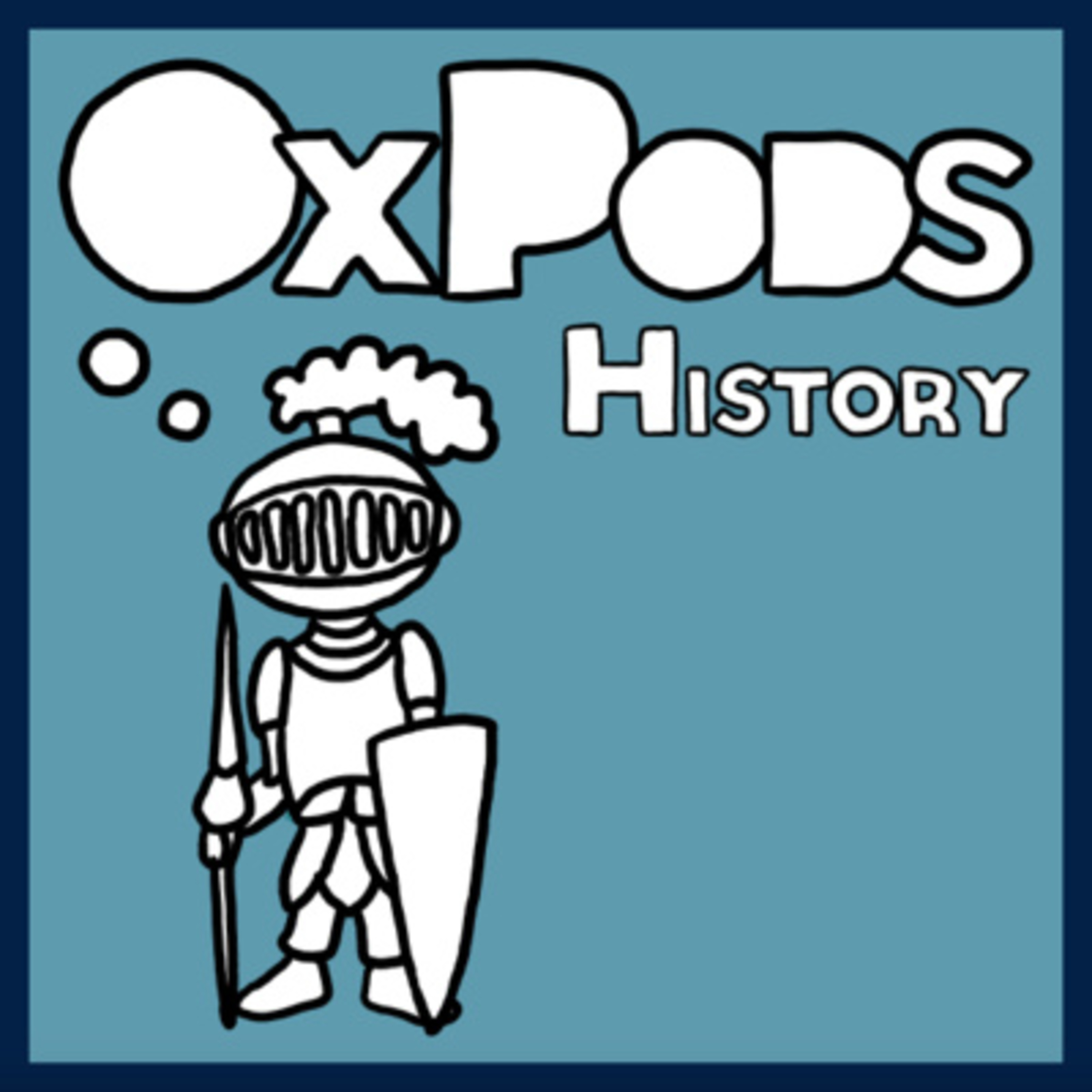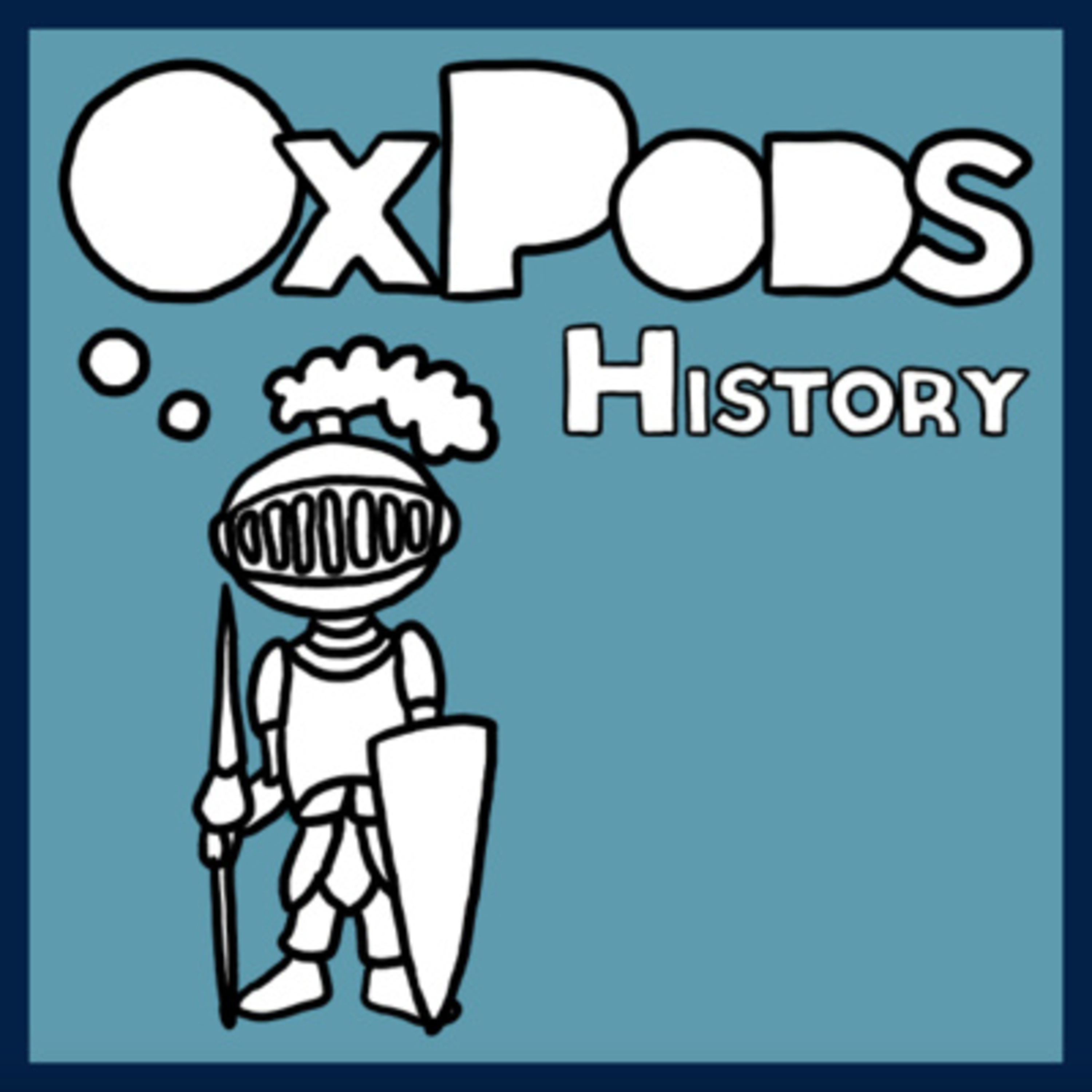
OxPods
The podcast by Oxford students and their professors.
OxPods aims to create thought-provoking and easily digestible podcast episodes, made for anyone with an interest in the world around them. Each episode entails an Oxford student interviewing one of their world-leading professors on the niche, weird, and wonderful of their subjects. With episodes exploring the nooks and crannies of the Natural Sciences, English, History, Human Sciences, and PPE, OxPods has something for everyone.
If you would like the transcript of an episode, please get in touch with us via email - [email protected]
- Update frequency
- every 4 days
- Average duration
- 29 minutes
- Episodes
- 80
- Years Active
- 2023 - 2025

The History of Yoga
What is the history of Yoga? And how can something apparently Indian have become such an everyday activity for people across the world? I’m Robert Taylor, a History DPhil student at New College, rese…

Witchcraft in the English Imagination
The witch craze that gripped early modern Europe has been the subject of many studies. What can we learn about English society in this period through the lens of belief in and persecution of witches?…

British 'Hippiedom' and the Idea of India
The British hippie movement of the 1960s left an indelible mark on popular culture and woven into this counterculture was a fascination with Indian spiritual practices. When the Beatles went to India…

A History of Western Fascination with the East
The ‘East’ has held a special place in the British cultural imagination. But how can we chart this historically? And how useful are frameworks of ‘East’ and ‘West’ within a modern world connected by …

Giant Otters
To most, otters are those small fluffy creatures that lie back, hold hands and drift off into the sunset. In this episode, PhD student Claire Marr shakes up that expectation in conversation with 4th-…

The Five Senses in Medieval Thought
Understanding the five senses is a foundational element of modern education, but how long has this been the case throughout history? Where did the idea originate and how did it survive when so many o…

Decolonisation in Lusophone Africa
This episode explores the diplomatic strategies of Lusophone African liberation movements at the United Nations. We speak with Maria de Costa to discuss how movements in Angola, Mozambique and Guinea…

Writing Queer History
Queer history is a relatively new addition to the lexicon of historical analysis, and questions remain about how best to approach the study of queerness in the past. To what extent can we 'find' quee…

The First Thousand Years of Christianity
The development of Christianity in the centuries following the death of Jesus was far from plain sailing. Which ideas and authors played the most significant roles in the shape of the religion as it …

Decoding Climate Misinformation: Strategies for Navigating the Climate Conversation
Climate change is understandably a current hot topic (no pun intended) that many of us care a lot about. But how good is our climate literacy, really? Three panellists from Oxford take on this topic,…

What is History Now?
Host: Charlie Bowden
Editor: Charlie Bowden
In celebration of the 300th anniversary of the establishment of the Regius Professorship of History at Oxford, the History Faculty organised a research ev…

Creolization in Medieval Latin Europe
Description: The process of creolization, in which various languages and cultures mix into diverse new forms, has been an underutilised tool in historical analysis for some time. In the context of me…

The Normalization of the Radical Right
Our final episode of the academic year! An interview with Nuffield College postdoctoral prize research fellow Vicente Valentim on the theory put forward in his upcoming book “The Normalization of the…

Post-War Education and Youth Politics
British society was fundamentally shifted by the Second World War, and among the many transformations that took place in the post-war years, those experienced by young people in respect to their educ…

OxSci x OxPods: Post-COVID-19 Era
Pandemics of the past highlight the persistent threat of disease throughout human history. It might seem that our repeated encounters with infectious diseases should have better prepared us for such …

Week 5 Blues? Depression, Depressive Symtoms, and Resiliance.
Depression has developed from a taboo topic to one that is widely spoken about and investigated in recent years. There are several debates surrounding its heritability, symptoms whether diagnosis can…

OxSci x OxPods: Re-imagining Justice for Humans and More-than-humans
When we read anthropological accounts, it is easy to overlook the extensive fieldwork and lived experiences that inform them. How can anthropologists interrogate the ethics of their discipline, and f…

From Hercules to the Hulk: Examining the Superhero
Starting in comic books and more recently appearing in movies and television shows, characters like Captain America and Superman have become household names. But where did these superheroes come from…

Pot-Banging and Protest in Twentieth-Century Spain
Traditions of political protest in Spain, particularly the practices of caceroladas and cencerradas, have frequently been conflated by modern scholars as they are both actions rooted in the productio…

Shark on the Menu: Balancing Consumption and Conservation in Fisheries Management
Over 3.3 billion people get almost 20% of their protein from seafood. The consumption of species from wild populations is pivotal in preventing malnutrition and improving food security, especially in…